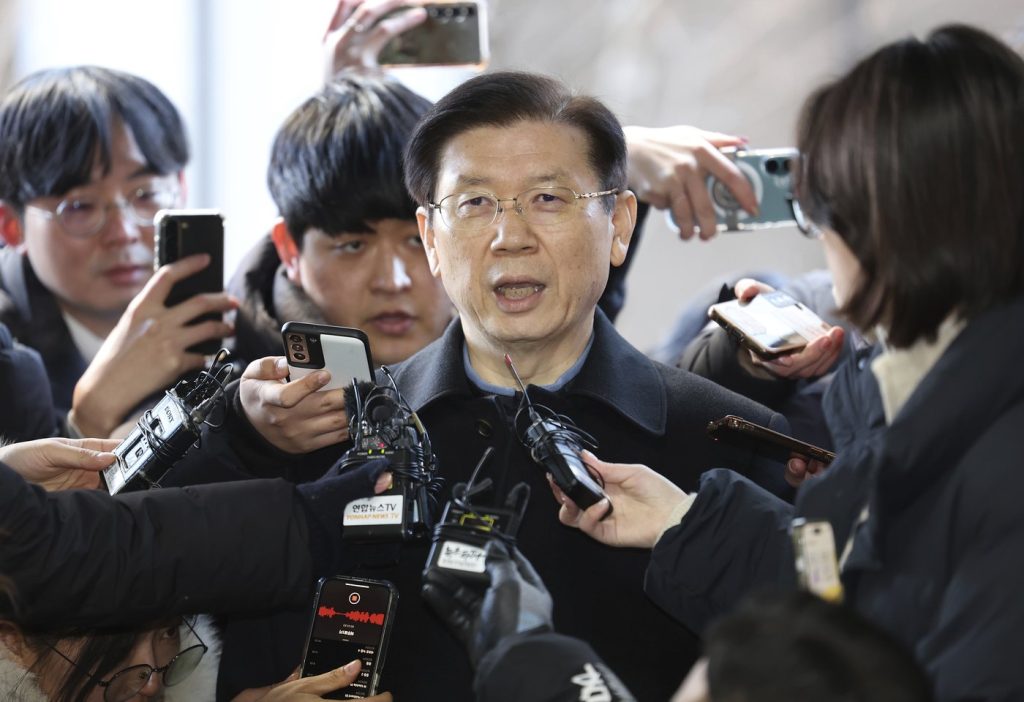SEOUL, South Korea (AP) Tensions intensified in South Korea as police interrogated Park Jong-joon, the chief of the presidential security service, amid ongoing efforts to detain impeached President Yoon Suk Yeol. The clash comes as the Corruption Investigation Office for High-Ranking Officials and the police pursue an investigation into Yoon's brief declaration of martial law on December 3, which they are assessing for potential rebellion charges.
The presidential security service previously obstructed an attempt by investigators to detain Yoon at his official residence, where he has been confined for weeks. Park has publicly stated that his primary responsibility is to protect the president, warning that further confrontations could lead to "bloodshed." Critics have accused the presidential security service of transforming into Yoon's private militia
Park faced questioning after ignoring two earlier summonses, following his agency's previous actions that foiled investigators from approaching Yoon's residence. The police and anti-corruption officials have vowed to initiate a second, more forceful attempt to detain Yoon, signaling a potential crackdown on the presidential security staff should they interfere again.
Currently, Yoon remains isolated at his official residence in Seoul, which has been fortified with barbed wire and vehicles to block access. His declaration of martial law involved deploying troops around the National Assembly on December 3 but was swiftly rescinded. His presidential powers were suspended when the opposition-dominated Assembly voted to impeach him on December 14, accusing him of rebellion. His fate is now in the hands of the Constitutional Court, which is deliberating whether to formally remove him from office or dismiss the charges against him.
Speculation is rife that police might attempt to detain Park and other key members of the presidential security service before reattempting to execute the detainment order against Yoon. Upon arriving for police questioning, Park reiterated his opposition to efforts to detain Yoon, asserting that investigations ought to respect the status of an incumbent president and the dignity of the nation.
Park expressed concern over the potential for conflict between government agencies, emphasizing the need to avoid physical clashes. He noted that he had initiated discussions with the acting leader, Deputy Prime Minister Choi Sang-mok, in hopes of mediating a resolution between law enforcement and the presidential security forces without encountering violence.
Yoon's legal team has criticized the police's actions, alleging that they undermine the authority of the presidential security service. They characterized the attempts to detain Yoon as abnormal and a serious breach of national security. The presidential security act mandates the protection of Yoon but does not allow the service to obstruct court-ordered detainment, leading some legal experts to assert that the service's prior actions may have been illegal.
In parliamentary discussions about the situation, National Court Administration head Cheon Dae-yeop pointed out that any resistance to lawful orders could amount to a crime, such as obstruction of official duties. While the president enjoys broad immunity from prosecution, this does not cover allegations like rebellion or treason.
Yoon's lawyers are contesting the validity of a new detention warrant against him, arguing that the anti-corruption agency lacks the jurisdiction to investigate charges of rebellion or to order his detention. They further contend that the warrants cannot be enforced at his residence under certain laws protecting locations related to military secrets.
Yoon's legal team has called for the agency to either bring formal charges against the president or to pursue a legitimate arrest warrant, which would require court proceedings. They assert that Yoon would only comply with an arrest warrant issued by the Seoul Central District Court, claiming the anti-corruption agency deliberately chose another court seen as potentially favorable.










